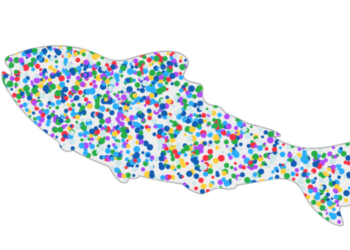The Galician Mussel Producers’ Organisation (Opmega) is working, in collaboration with the University of Vigo, on the MytilUP project – An initiative that forms part of the organisation’s strategic actions aimed at ‘guaranteeing efficient and environmentally friendly production by ensuring the availability of mussel seed without relying exclusively on natural catchment’.
Although the project will continue to progress in 2025, Opmega highlights the important work carried out during 2024 within the framework of MytilUP, with research that it considers ‘key’ to optimising the production of seed in hatcheries. Among the most important advances, the majority organisation in the sector highlights the sampling of broodstock ‘which has enabled the selection and quality of mussels destined for reproduction to be improved’. Also the larval cultures at different densities, analysing their evolution and selecting the best conditions for their development.
For Opmega, the advances being made in MytilUP ‘are essential’ to ensure the continuity of the sector and reduce dependence on natural seed banks.Another of the project’s achievements to which Opmega wishes to draw attention is the optimisation of larval fixation, ‘a crucial phase in seed production’.
In this sense, it explains that different settlement systems have been evaluated with the aim of increasing survival and strengthening sustainable production. Work has also been done on the monitoring and control of the seed in the seed tray ‘ensuring that the minimum size for its transfer is the most appropriate for its development in the marine environment’.
In this context, and in line with the organisation’s commitment to sustainability, Opmega also stresses that improvements have been made in the conditioning of broodstock ‘guaranteeing high quality clutches and larvae with greater viability’, and that different species of phytoplankton have been tested, identifying those with the best nutritional profile for optimal mussel growth.
For Opmega, these advances ‘are essential’ if we want to ensure the continuity of the sector and reduce dependence on natural seed banks. ‘We are working to consolidate a sustainable and efficient production model that guarantees the future of Galician mussels and the preservation of the marine ecosystem,’ said Ricardo Herbón, president of the organisation.
The MytilUP project will continue to advance in 2025 with new complementary research, ‘reaffirming the commitment of the bateeira organisation to innovation and sustainability in mussel production’, concluded the organisation of the most important mussel producers in the Iberian Peninsula, with almost 600 bateas and more than 300 members.
The Organisation of Galician Mussel Producers (Opmega) is satisfied with the scientific advances of the MytilUP project for the production of seed in hatcheries








